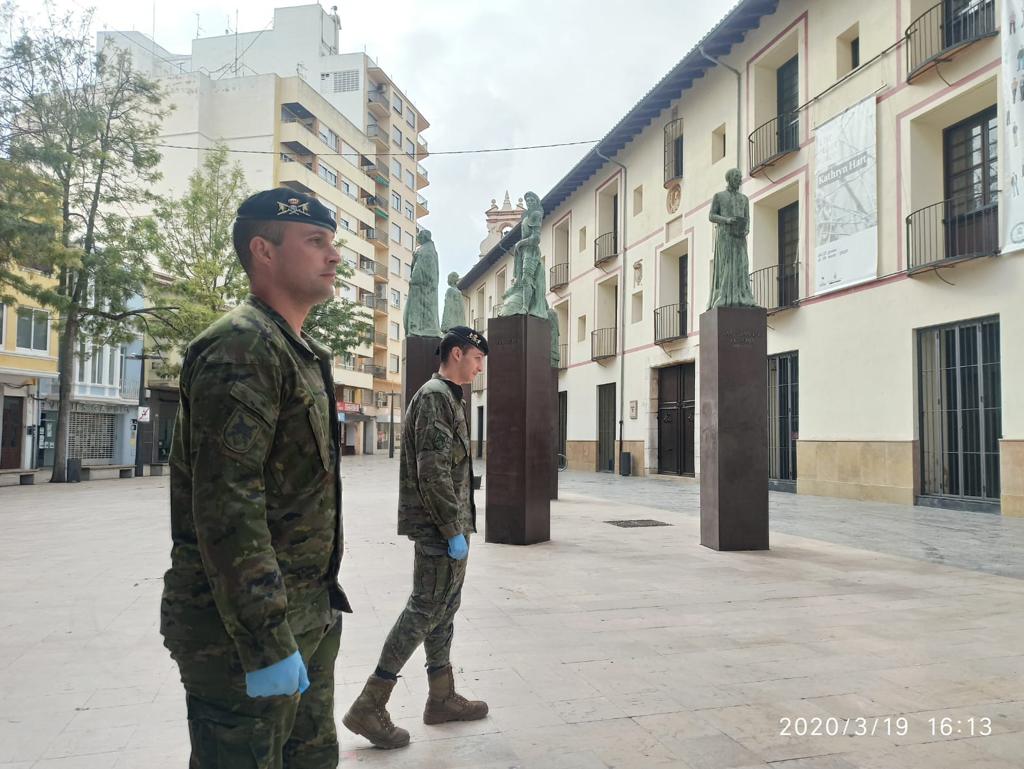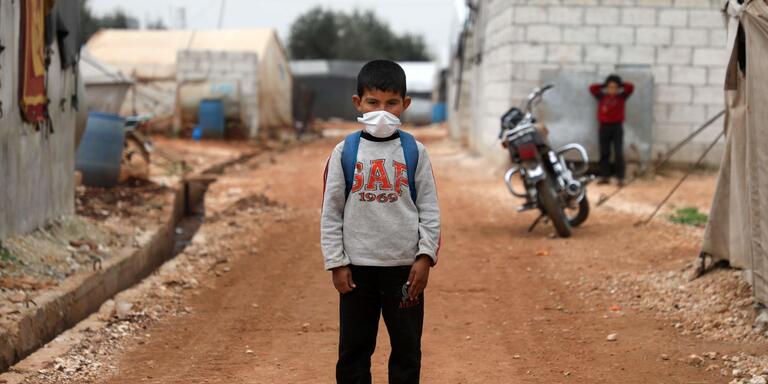On the 30th March, the Hungarian Parliament
voted 137 – 53 to give Viktor Orban’s government the power to rule by
decree in response to the COVID-19 pandemic. Such measures, ostensibly in order
to give the government a free-hand to take action against the spread of the
virus, have raised significant
concerns both within Hungary and across Europe, with critics arguing that
it gives Orban “unnecessary and unlimited power”. Particularly worrying is the
fact that these powers have been bestowed upon Orban with no time limit, effectively,
in the words of
opposition leader Peter Jakkab, placing the whole of Hungarian democracy “in
quarantine” indefinitely.
Despite support in the public sphere for governments to have
tight control over their coronavirus response, the main worry is that certain individuals
and governments may use this power to their own advantage. Viktor Orban has
long been seen as a threat to democracy in Hungary, and since rising to power
in 2010 has systematically
chipped away at many of the checks and balances of the Hungarian state. His
far-right
populist policies, claims that Europe is “under invasion”,
and authoritarian
tendencies have
plagued policy-makers in the European Union since long before the current
crisis. COVID-19 has given him the push he needed to seize absolute control of
Hungary, ostensibly as a legitimate response to the current emergency. His
track record, however, suggests that such powers will be used to further
solidify his position, leading some to claim that with Hungary, COVID-19 has “killed
its first democracy”.
 |
| Hungarian Prime Minister Viktor Orban - the first Western leader to use COVID-19 for personal gain? |
Whilst it remains to be seen if such fears have been
misplaced, the threat of authoritarian rulers using the COVID-19 pandemic to
consolidate their own power and pursue external goals is very real. It could be
argued that the pandemic has taken hold at an unfortunate time in history,
where many states around the world are witnessing
a shift towards authoritarian thinking. Brazil’s Jair Bolsonaro,
for instance, has flouted
the international norm and pushed ahead with continued economic and social
activity across Brazil, despite members of his own cabinet falling victim to
the virus. In response to criticisms of his approach, he has threatened to fire
his health ministers and scientific advisers. As Bolsonaro continues to bury his head in the sand, it has fallen to Rio's gangs to enforce social distancing measures in the communities they inhabit.
In India, Hindu-nationalist
leader Narendra Modi has been widely criticised for his botched
handling of the lockdown which resulted in widespread
violence and displacement across the country. In a context of great
division even before the pandemic, Indian
minority groups now fear that the lockdown measures will be used as a way
to further disenfranchise and disconnect them from access to government
support. Muslim groups, displaced
by pogroms in Delhi, can expect little to no support from the government in
the coming weeks. With those forced to exist in displaced people’s camps, with
little to no medical support or capacity to self-isolate, the coronavirus can be
expected to spread rapidly amongst these vulnerable groups. A rising number of
sick Muslims in India could easily be weaponised as a way to further alienate
the group from the Hindu majority, and these populations can
expect to be scapegoated as the crisis deepens in the coming weeks.
Xenophobia and racism can spiral in times of crisis, and the
COVID-19 pandemic is no exception. Donald Trump’s insistence
at referring to the virus as the “Chinese Virus” highlights the way that populists
can turn an emergency into a blame game. China’s own authoritarian leadership has
been quick to fuel rumours that the coronavirus outbreak may
have been caused by the US military in an act of biological warfare, an
absurd claim that nevertheless escalates the war of words between the superpowers
and undermines
global diplomacy at a time where it is needed more than ever. With the
outbreak originating in China, there will undoubtedly be questions directed at
the management of the early stages of the spread of the virus in Wuhan, and
many of them will be well-placed and require hard answers. With global
economies sliding into free-fall thanks to COVID-19, China finds itself
in the firing line as stock markets tank, industries collapse, and people lose
their livelihoods.
Accompanying this real need for accountability comes ignorance,
scapegoating, and thinly-veiled racism.
Never far from the crest of any wave of opportunistic
race-baiting, Nigel
Farage is again making headlines for attacking the UK government for its
decision to purchase ventilators from China, with others suggesting that we
cannot ‘trust’
the Chinese to sell uncontaminated ventilators. With reports that US
government officials are referring to the virus as the “Kung
Flu” in response to Chinese-American reporters asking questions, and increasing
vitriol being posted on social media accounts across the West aimed at
Chinese users, it seems clear that we are witnessing a global rise in hate
speech as the pandemic continues. Such rhetoric has spilled over into actions, with
reports of mob-violence
directed at Asian people in the UK, and a “shocking
rise” in hate crimes reported by police, even with the current social distancing
conditions in the country.
In response to such behaviour, already stretched emergency
services can and should respond to limit the damage caused by those who do not
follow the rules of the lockdown. In the UK, we’ve seen allegations of the rise
of a “police
state” as forces around the country seek to limit interpersonal contact.
Such a claim is absurd and ridiculous, but it demonstrates how uncomfortable
British people are with government encroachment on their own social lives. In
Italy, we’ve seen increasingly
aggressive tactics being used by stretched-to-the-limit police forces
trying to ensure people stay on lockdown. In Spain, the military has
been deployed to keep people inside.
 |
| The Spanish military enforcing lockdown measures. Credit: Olive Press. |
Avoiding these authoritarian measures is simple. Do what is
being advised by the experts. Stay inside, keep your distance from others, support
the vulnerable in your community where possible, wash your hands, and do
everything possible to slow the spread of the virus. If we practice personal
responsibility, and social solidarity, then our governments need not intervene
as stringently on our behalf.
We in the West do not take kindly to the sort of authoritarian
response that
has been seen in China. We do not do well when our civil liberties are
threatened. Some people take this to mean they do not have to follow government
advice. But those people should remember that in a crisis, advice can very
quickly become an order. In an attempt to protect its people, a government
sometimes has to make undemocratic decisions. In the case of Hungary, the country’s
leadership has solidified its power in order to respond to an unprecedented
crisis. When the pandemic has subsided, Hungary may just find that one of the
victims of COVID-19 was its democratic values.
Strong, sometimes draconian, measures will be required to
combat the spread of COVID-19. Governments will be forced to make decisions
that they would never consider in business-as-usual circumstances. In some cases,
the democratic process may have to be postponed. There are many legitimate reasons
for governments to impose more direct rule in a time of crisis. But now is no
time to blindly support the actions of national leaders. We must watch closely
what is done, critique the decisions that are made, and be definitive about
where we as citizens draw our hard lines on what we deem acceptable
intervention on our behalf.
The COVID-19 pandemic will pass, and when it does, we will
be left with the consequences of our actions during this time. This means we
must take personal responsibility for every decision we make. This means social
solidarity with our neighbours and communities, helping the vulnerable where we
can, and abiding by social distancing measures to slow the spread. This also
means holding our governments to account for their actions during this time. If
we do not take personal responsibility for halting the spread of COVID-19, our
governments will be forced to enact more authoritarian policies to ensure the
safety of the most vulnerable. Once that power is wielded, it can be difficult
to put back in the box.
We all want the COVID-19 pandemic to be brought to an end. The
only measure to stop the spread of the virus is to keep ourselves physically distant
from one another until we have a vaccine or a cure. That can be achieved by a
mass movement of social solidarity, or through government force.
Now more than ever, we need to look at our leaders, and look
at ourselves, and ask what kind of society we want to live in.
The most insidious side effect of COVID-19 could be the way
it erodes the social fabric of our democracies globally. We cannot allow that
to happen.
Stay physically distant, but socially engaged. Help your
friends, your neighbours, and the most vulnerable in your communities. Hold
your governments to account. Use this crisis to build a new world that is
better equipped to cope with whatever the future may hold. Do not look blame others. The power is in
every one of us to do the right thing and avoid the threat of disaster fascism
encroaching on our liberties and our lives.
